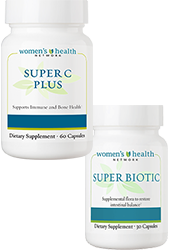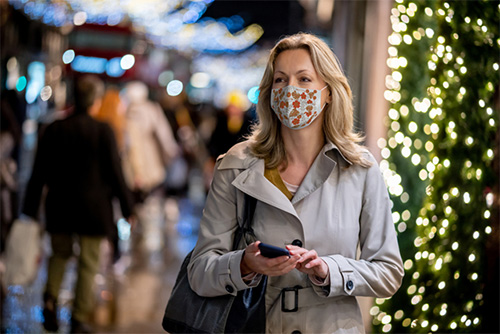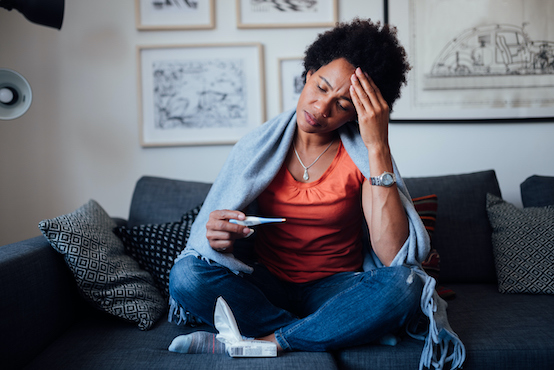Authored by Dr. Sarika Arora, MD
The ongoing Covid-19 crisis has made us all wonder about the strength of our immune systems, even if we’re vaccinated. As we head into winter, let’s give Vitamin D a moment in the sun and figure out how to use this immune-supporting vitamin to its fullest advantage.

According to findings, people with adequate levels of Vitamin D appear less likely to experience severe Covid-19 symptoms. Let’s dig into these studies and see what they say, and what it could mean for our own efforts to maintain healthy Vitamin D levels for immune support.
Vitamin D deficiency — the unknown factor for coronavirus risk?
In a recent study published in the Irish Medical Journal, researchers from Trinity College Dublin analyzed Vitamin D levels among adult populations in Europe. They looked at Vitamin D levels tracked since 1999, and compared these levels with death rates from Covid-19 in 2020.
What they found was surprising. Adults living in sunny countries at lower latitudes, such as Spain and Italy, actually had lower Vitamin D levels and higher rates of Vitamin D deficiency. In 2020, these same two countries experienced the highest Covid-19 infection and death rates in Europe.
Was Vitamin D deficiency one of the deciding factors why Italy and Spain were so hard hit?
To help answer this, researchers looked to Norway, Finland and Sweden. They found that adults in these northern countries had higher Vitamin D levels and lower rates of Vitamin D deficiency, despite less sunlight exposure. Vitamin D supplementation and food fortification are more common in these countries. In line with this, researchers noted that Norway, Finland and Sweden had much lower COVID-19 infection and death rates compared to Italy, Spain and many other European nations.
The researchers concluded: “The correlation between low Vitamin D levels and death from Covid-19 is statistically significant.” They even followed up their study with a call for the Irish government to recommend that all adults take Vitamin D supplements during the Covid crisis to overcome deficiency. They pointed out that age, obesity, diabetes, hypertension and being in a nursing home all raise the odds of Vitamin D deficiency. This list, of course, is virtually identical to the list of heightened risk factors for Covid-19.

Optimal Vitamin D may help the body fight off COVID-19
In another study on Vitamin D, this one from the University of Southeastern Philippines, researchers found that Covid-19 hospital patients with lower Vitamin D levels experienced worse outcomes and more complications from coronavirus than patients with adequate Vitamin D levels. In other words, lower levels of Vitamin D were associated with more severe coronavirus symptoms. And higher levels of Vitamin D were associated with less severe symptoms.
And that’s not all. In a special issue of the journal Nutrients, a group of American and Hungarian researchers recommended that people at higher risk for infection from Covid-19 and other viral infections strive to raise their Vitamin D blood serum concentrations to 40–60 ng/mL to help protect themselves. That’s the level we’ve been recommending for years. But it’s above the level recommended by most conventional doctors.
Why is Vitamin D so important for immunity?
Vitamin D is different from other vitamins because it’s not really a vitamin in the classic sense. It’s actually a hormonal precursor. The body uses Vitamin D to make calcitriol, a potent hormone capable of signaling over 1000 different genes to express or suppress themselves, including genes that affect immune function.
Prior to the Covid-19 crisis, we had a good picture of Vitamin D’s role in innate immunity. That part of the immune system responds rapidly to viruses and bacteria. Vitamin D appears to help “flip the switch” on genetically encoded response mechanisms. This includes the production of antimicrobial peptides that help to eliminate viruses. The innate immune system is the frontline of our response to a novel pathogen like CoV-2, the virus that causes Covid-19.
Your body needs Vitamin D for the proper signaling of our immune system’s T-cells. These are major players in our adaptive immune system. Without enough Vitamin D, the T-cells will not activate. Vitamin D’s other vital role is the regulation and suppression of the inflammatory cytokine response. Scientists believe the “cytokine storm” causes the acute respiratory distress syndrome associated with severe coronavirus cases. It also causes much of the severe organ damage that seems to drive long-term complications and higher rates of mortality.
We’ve seen hundreds of studies over the last 10 years documenting the many ways Vitamin D supports our health. Science shows Vitamin D influences the heart, bones, kidneys, gut, lungs and more, playing a crucial role in our health.

How much Vitamin D do you need — and how do you get it?
Here’s something that we need to accept: many of us — if not most — are deficient in Vitamin D. So in figuring out how to get more Vitamin D, you need to know your starting point. It’s a good idea to have your Vitamin D blood serum level tested at least once a year, preferably in the spring when your levels are likely to be lowest.
If you are deficient in Vitamin D, how much do you need to bring your levels up to optimal range? For some, a helpful amount may be between 2,500 and 4,000 IUs of Vitamin D3 per day. Vitamin D is a fat soluble vitamin that can build up in the system. So talk to your doctor about a safe amount for you.
A little dose of sunshine helps too, but it’s not the substitute most people think. If you follow sun safety precautions and stay outside for about 20 minutes in direct light, Vitamin D production can be stimulated in the skin. But you have to expose a lot of skin, and the benefit drops off quickly as you move into northern latitudes.
The safest path is to get your Vitamin D levels tested. If you are deficient, build them up with supplements at a rate your doctor approves. Many doctors (including me) support taking 2,500-4,000 IUs as a daily maintenance dose. But if you’re severely deficient and need to take higher dosages to recover to optimal levels, only do that under a doctor’s supervision. As with many nutritional supplements, more is not necessarily better. Once you’re at optimal levels, you can maintain them with a mix of supplements and sunshine depending on the time of year.
Here’s to sunny days ahead and more hopeful research on ways we can guard and protect our immune health.
Take care and be well.
| Shop for Immune Support |
Your Satisfaction Is 100% Guaranteed












